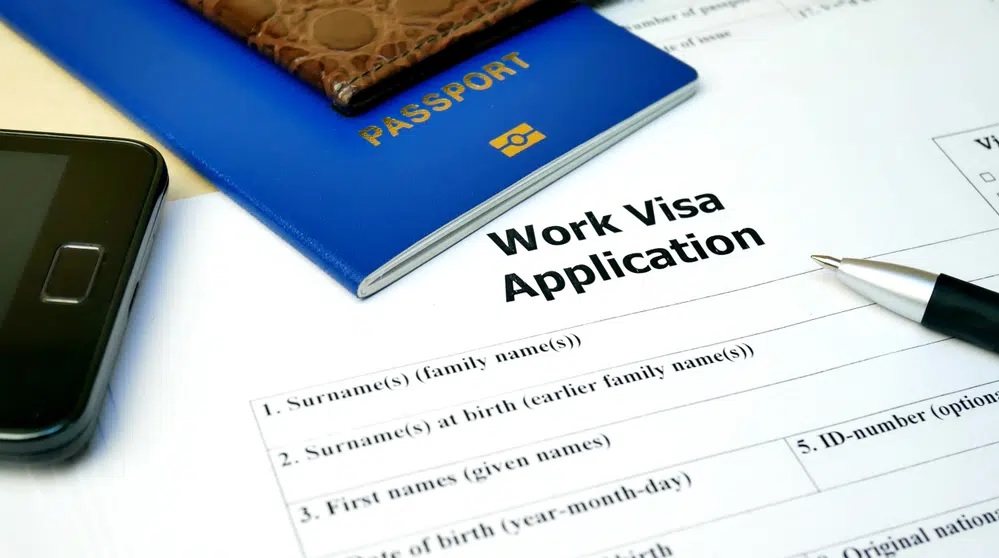In addition to buying property in Spain, a frequent request from foreigners is to find a job in Spain. Indeed, it is not enough to move to a new country, you have to live on something. Not everyone has a successful business that will allow them to live in the sunny country and enjoy life. Thus, it is worth considering how to get a work permit and who you can get a job in Spain.
What Foreigners Need To Work In Spain
A foreigner is required to have a work permit in order to be legally employed. Depending on the nationality and the intended position, the way to obtain this permit may vary.
- Citizens of the EU, Switzerland, Iceland, Liechtenstein and Norway do not need a work permit. They only need to register with the Spanish social security system.
- Non-EU residents must obtain a work permit on a general basis. To do this, you will have to contact the embassy or consulate of your country. It is advisable to research the eligibility requirements in advance before applying. This information is available on the Spanish Embassy website.
Knowledge of the Spanish language will be a great advantage. It is necessary to know it at least at the B1 level. Today there are many government courses, which are free of charge, where you can learn the basics or improve your level of Spanish.
Note. For digital nomads, the process of obtaining a work permit is as simple as possible. It is necessary to confirm an income of at least 3000 euros per month per applicant. The processing time for applications will be up to 45 days instead of the standard 3 months.
Work Permit
Spain offers several types of work permits. Some people do not want to understand this and turn to specialised companies for help, but it is not that complicated. It is enough to read this material to understand which type of visa is right for you.
The general work permit is divided into subtypes:
- Type A. The purpose of registration - seasonal activity or one-time work. On this visa you can stay in Spain for up to a year.
- Type B. The purpose of registration - work in a particular speciality in a particular company. Initially the visa is issued for a year with the possibility of prolongation for 2 years in the future.
- Type C. Such a document is issued to those whose type B permit has expired. On this visa you can work in any sphere on the territory of Spain.
- Type G. The purpose of registration - the performance of specific work in a certain region of Spain by seconded employees from non-EU countries. It is issued for a maximum of one year and can be extended for another year.
- Type F. This type is for non-EU nationals living in border areas. You can work or run a business in the border areas with the condition that you return to your home country every day.
- Type T. It is a subset of type A. The difference is that the document is issued to a specific professional whose work cannot be performed by an EU citizen. It is issued for a maximum period of 9 months.
It takes an average of 3 months to obtain a work permit. You then need to apply for a work visa through the Spanish consulate in your country within a month.
It is also worth applying for a visa extension in advance to avoid getting into a situation where the new visa is not yet ready and the old one has expired, so you cannot work in the country.
Work Visa

This type of visa allows you to reside in Spain for the duration of your work permit (from 91 days to 5 years).
To obtain a work visa you will need a passport, a photograph, an employment contract or business registration certificate, proof of sufficient financial means, and the place where you intend to live. All documents must be in Spanish.
Visa processing may take 1-3 months. During this time it is advisable to stay in the country, as at any moment you may be called for an interview at the consulate.
Within a month of obtaining your visa, you will need to register at the local police station, where you must come together with your employer.
As for family members, they can obtain a companion visa. The requirements depend on the type of visa of the main applicant. But there is an exception, which concerns graduates of Spanish universities. They, as well as highly qualified professionals, can obtain a visa for job search (Visado para búsqueda de empleo), which allows them to stay in the country for a year to look for work without a contract.
In-Demand Professions And Average Salaries In Spain
Here is a table of in-demand professions in Spain for foreigners with average salaries:
|
Profession |
Average Salary |
|
Software Developer |
€3700-€4000 |
|
Web developer |
€3000-€3300 |
|
Data Analyst |
€3400-€3700 |
|
Cybersecurity Analyst |
€3200-€3500 |
|
Civil Engineer |
€3600-€3900 |
|
Mechanical Engineer |
€3500-€3800 |
|
Electrical Engineer |
€3400-€3700 |
|
Physician |
€4000-€4500 |
|
Nurse |
€2700-€3000 |
|
Dentist |
€3800-€4200 |
|
English teacher |
€2800-€3100 |
|
Preschool teacher |
€2600-€2900 |
|
Hotel manager |
€3200-€3600 |
|
Restaurant manager |
€2900-€3200 |
|
Tour guide |
€2500-€2800 |
|
Accountant |
€3000-€3300 |
|
Lawyer |
€3400-€3800 |
|
Marketing specialist |
€3100-€3400 |
|
Sales specialist |
€3300-€3600 |
Note. The actual salary may differ significantly from the average salary. It depends on the company, your experience and a number of other factors.
Shortage Occupations
The following professions are in short supply in Spain:
- professional athletes;
- sports coaches;
- refrigeration technicians in the navy;
- chief engineers of merchant ships;
- marine engineers;
- pilots;
- radio electronics technicians on merchant ships;
- ship's cooks;
- passenger ship attendants;
- deck bosuns (except fishermen);
- deck labourers (except fishermen);
- deck loaders;
- IT specialists;
- doctors, nursing staff.
Spain has a quota system, so the number of migrant workers is limited. The higher your qualifications, the more likely your request for a work permit will be approved.
Income Tax
In Spain, income tax varies from 19% to 45%. This rate depends on the level of income: the higher the earnings, the greater the tax burden. The highest rate applies to incomes exceeding €60,000 per year.
There are opportunities to reduce tax liabilities. For example, families with children, dependents or parents living with adult children can count on individual tax deductions (on average around €5,500 to cover the basic necessities of life).
In addition, the tax rate can be reduced for participants in pension schemes, as well as for timely contributions to the Federal Social Security Fund, donations, charitable contributions and investments in cultural heritage sites.
How And Where To Look For A Job In Spain?
There are many ways to find a job in Spain. Here are some tips:
Internet search:
- Specialised websites. There are portals that help you find an employer and sign a contract remotely while you are still in your home country.
- Official company websites. They often publish data about open vacancies.
- Social networks. Many companies also use social media to post open positions.
- Government resources.
Offline search:
- Networking jobs. Talk to your friends, family and former colleagues to see if they know of any open positions in Spain.
- They can help you find a job in Spain, but not for free.
- Job fairs. Spanish employment services regularly organise job fairs (Feria de Empleo) and provide Erasmus+ and AIESEC internship programmes.
If you are planning to move to Spain for permanent residence, our manager is ready to make a personalised selection of objects taking into account your interests and financial possibilities. Practice shows that most often foreigners buy apartments in Alicante to move to Spain. He will also advise you on all the issues of settling in your new place.





